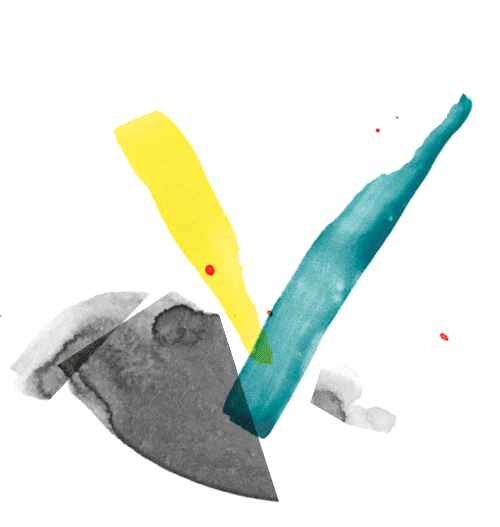

Sign up for our newsletters. You can change the settings or unsubscribe at any time.
Thank you for your subscription. We have sent you an e-mail with a confirmation link.


exp. 1
exp. 2
exp. 3

Aline Baiana
Venue: Gropius Bau
Aline Baiana
Born 1985 in Salvador, BR – lives and works between Rio de Janeiro, BR, and Berlin, DE
For centuries, the constellation of the Southern Cross played a central role in seafaring, also leading the Portuguese to Brazil in 1500, as reported by astronomer Mestre João Faras, who accompanied the expedition. The constellation is only visible from the southern hemisphere and is composed of five stars forming a cross-like figure pointing south.
Aline Baiana’s installation The Cross of the South (2020) replicates the constellation employing five stones from which iron ore, manganese ore, copper ore, gold, and ornamental stone are typically extracted. These minerals are emblematic of the massive mining industry that has developed in Brazil since the beginning of colonization. Arranged in the same order as the stars of the constellation, the gems form a cross that is only recognizable from one specific point in the exhibition space. The work thus encourages us to walk around and change our viewing perspective, exhorting us to reflect critically on the way historical narratives are also informed by a dominant viewpoint—one that has neglected other systems of knowledge and narratives, including Indigenous ones.
Mining is one of the major industries in the Brazilian economy, having disastrous consequences for the environment and the Indigenous peoples who have lived on these lands since pre-colonial times. The 2019 Brumadinho dam break is one catastrophic example among countless others. Baiana’s work highlights the collective trauma and environmental impact of the enduring crimes of colonization. It also prompts a geological and cosmological look into decolonized futures in which manifold systems of knowledge are understood non-hierarchically, and the natural environment is not viewed solely as a resource to be exploited and commodified.
Vanina Saracino
I: Junto a las curadoras de la XI Berlin Biennale for Contemporary Art
Renata Cervetto, Lisette Lagnado
Conversation
THE MOBILIZATION
Nicolás Cuello
Text
BLM KOREA ARTS
#BlackLivesMatter #BLMKoreaArts
Young-jun Tak
Statement
Expresiones de la locura: el arte de los enfermos mentales
Hans Prinzhorn
Monograph
Flávio de Carvalho: Fazenda Capuava
Archive of Lisette Lagnado
Photographs
#fight4rojava
Graffiti
By using this website you agree to the use of cookies in accordance with our data privacy policy.

Aline Baiana
Venue: Gropius Bau
Aline Baiana
Born 1985 in Salvador, BR – lives and works between Rio de Janeiro, BR, and Berlin, DE
For centuries, the constellation of the Southern Cross played a central role in seafaring, also leading the Portuguese to Brazil in 1500, as reported by astronomer Mestre João Faras, who accompanied the expedition. The constellation is only visible from the southern hemisphere and is composed of five stars forming a cross-like figure pointing south.
Aline Baiana’s installation The Cross of the South (2020) replicates the constellation employing five stones from which iron ore, manganese ore, copper ore, gold, and ornamental stone are typically extracted. These minerals are emblematic of the massive mining industry that has developed in Brazil since the beginning of colonization. Arranged in the same order as the stars of the constellation, the gems form a cross that is only recognizable from one specific point in the exhibition space. The work thus encourages us to walk around and change our viewing perspective, exhorting us to reflect critically on the way historical narratives are also informed by a dominant viewpoint—one that has neglected other systems of knowledge and narratives, including Indigenous ones.
Mining is one of the major industries in the Brazilian economy, having disastrous consequences for the environment and the Indigenous peoples who have lived on these lands since pre-colonial times. The 2019 Brumadinho dam break is one catastrophic example among countless others. Baiana’s work highlights the collective trauma and environmental impact of the enduring crimes of colonization. It also prompts a geological and cosmological look into decolonized futures in which manifold systems of knowledge are understood non-hierarchically, and the natural environment is not viewed solely as a resource to be exploited and commodified.
Vanina Saracino
Fragments of the Artist’s Diary, Berlin 11.2019–1.2020
Virginia de Medeiros
Diary
Expresiones de la locura: el arte de los enfermos mentales
Hans Prinzhorn
Monograph
New Look
Flávio de Carvalho
Performance
A World Without Bones
Agustín Pérez Rubio
Teatro da Vertigem
Monograph
Museo de la Solidaridad Salvador Allende (MSSA) in Berlin
A conversation between María Berríos and Melanie Roumiguière
Conversation
By using this website you agree to the use of cookies in accordance with our data privacy policy.

Aline Baiana
Venue: Gropius Bau
Aline Baiana
Born 1985 in Salvador, BR – lives and works between Rio de Janeiro, BR, and Berlin, DE
For centuries, the constellation of the Southern Cross played a central role in seafaring, also leading the Portuguese to Brazil in 1500, as reported by astronomer Mestre João Faras, who accompanied the expedition. The constellation is only visible from the southern hemisphere and is composed of five stars forming a cross-like figure pointing south.
Aline Baiana’s installation The Cross of the South (2020) replicates the constellation employing five stones from which iron ore, manganese ore, copper ore, gold, and ornamental stone are typically extracted. These minerals are emblematic of the massive mining industry that has developed in Brazil since the beginning of colonization. Arranged in the same order as the stars of the constellation, the gems form a cross that is only recognizable from one specific point in the exhibition space. The work thus encourages us to walk around and change our viewing perspective, exhorting us to reflect critically on the way historical narratives are also informed by a dominant viewpoint—one that has neglected other systems of knowledge and narratives, including Indigenous ones.
Mining is one of the major industries in the Brazilian economy, having disastrous consequences for the environment and the Indigenous peoples who have lived on these lands since pre-colonial times. The 2019 Brumadinho dam break is one catastrophic example among countless others. Baiana’s work highlights the collective trauma and environmental impact of the enduring crimes of colonization. It also prompts a geological and cosmological look into decolonized futures in which manifold systems of knowledge are understood non-hierarchically, and the natural environment is not viewed solely as a resource to be exploited and commodified.
Vanina Saracino
Grupo Experimental de Cine en acción
Gabriel Peluffo
Drawing
Hatred Among Us
Lisette Lagnado
Essay
Fragments of the Artist’s Diary, Berlin 11.2019–1.2020
Virginia de Medeiros
Diary
St Sara Kali George
Delaine Le Bas
Soundscape
Maternidades subversivas
María Llopis
Monograph
Undocumented Rumours and Disappearing Acts from Chile
María Berríos
Essay
By using this website you agree to the use of cookies in accordance with our data privacy policy.

Aline Baiana
Venue: Gropius Bau
Aline Baiana
Born 1985 in Salvador, BR – lives and works between Rio de Janeiro, BR, and Berlin, DE
For centuries, the constellation of the Southern Cross played a central role in seafaring, also leading the Portuguese to Brazil in 1500, as reported by astronomer Mestre João Faras, who accompanied the expedition. The constellation is only visible from the southern hemisphere and is composed of five stars forming a cross-like figure pointing south.
Aline Baiana’s installation The Cross of the South (2020) replicates the constellation employing five stones from which iron ore, manganese ore, copper ore, gold, and ornamental stone are typically extracted. These minerals are emblematic of the massive mining industry that has developed in Brazil since the beginning of colonization. Arranged in the same order as the stars of the constellation, the gems form a cross that is only recognizable from one specific point in the exhibition space. The work thus encourages us to walk around and change our viewing perspective, exhorting us to reflect critically on the way historical narratives are also informed by a dominant viewpoint—one that has neglected other systems of knowledge and narratives, including Indigenous ones.
Mining is one of the major industries in the Brazilian economy, having disastrous consequences for the environment and the Indigenous peoples who have lived on these lands since pre-colonial times. The 2019 Brumadinho dam break is one catastrophic example among countless others. Baiana’s work highlights the collective trauma and environmental impact of the enduring crimes of colonization. It also prompts a geological and cosmological look into decolonized futures in which manifold systems of knowledge are understood non-hierarchically, and the natural environment is not viewed solely as a resource to be exploited and commodified.
Vanina Saracino
Maternidades subversivas
María Llopis
Monograph
Grupo Experimental de Cine en acción
Gabriel Peluffo
Drawing
II: La Solidaridad va Más Allá de un Concepto. Entre las Curadoras de la XI Berlin Biennale
Lisette Lagnado, Agustín Pérez Rubio
Conversation
Being in Crisis together – Einander in Krisen begegnen
Feminist Health Care Research Group (Inga Zimprich/Julia Bonn)
Online workshop
El primer nueva corónica y buen gobierno
Felipe Guamán Poma de Ayala
Chronicle
Solidarity and Storytelling. Rumors against Enclosure
María Berríos
Essay
By using this website you agree to the use of cookies in accordance with our data privacy policy.
By using this website you agree to the use of cookies in accordance with our data privacy policy.




